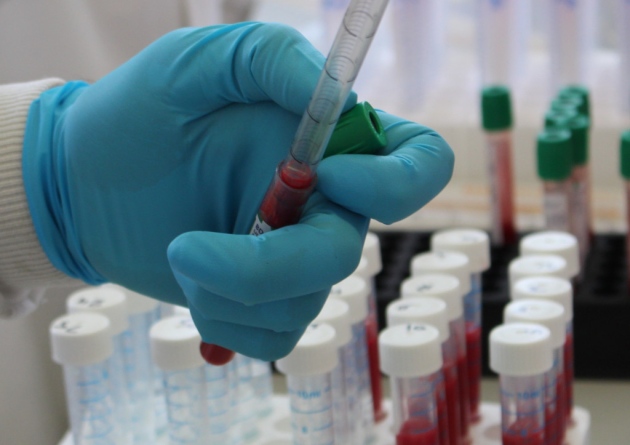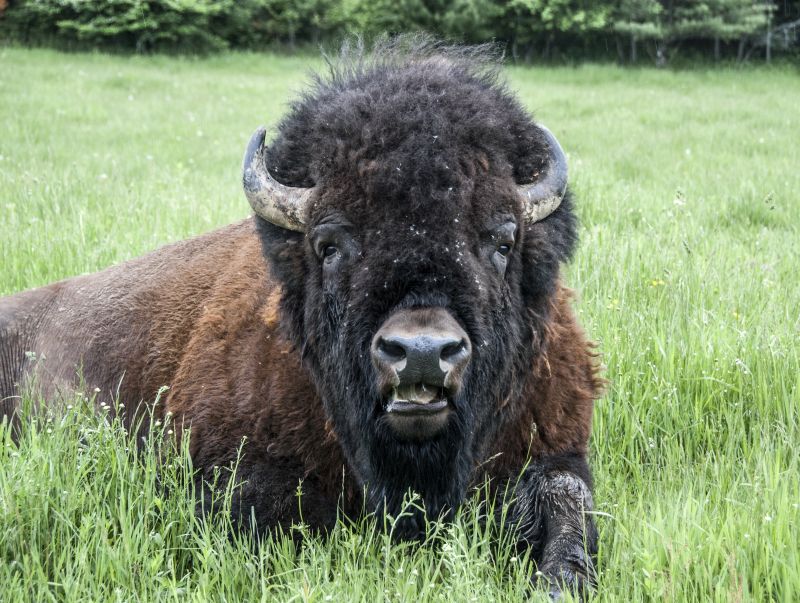
A new study will assess the potential of innovative blood test Actiphage in detecting bovine TB in Canadian wild bison.
The potential of wildlife to maintain a reservoir of disease is a much debated topic, but there have been few scientific studies that evaluate the risk and recommend practical strategies for disease management.
Now, new research by Canadian scientists will assess Suffolk-based PBD Biotech's Actiphage test in wild bison.
Actiphage is a rapid accurate test for detecting even very low levels of mycobacteria - the bacteria that causes TB - from a blood or milk sample.
The results are available within hours, enabling early detection and improved disease management.
It has been successfully tested in humans and 20 species of animals, but never before in wild bison.
Volker Gerdts, of the University of Saskatchewanin in Canada, said detecting TB in livestock and wild animals is an issue worldwide.
“This trial will provide scientific data that has the potential to improve detection and control of a disease that can be devastating to the agricultural industry,” he said.
To help protect Canada’s cattle and bison and maintain a bovine TB-free status, scientists are conducting trials of several diagnostic tools, including the Actiphage blood test.
While a successful Canadian bovine TB control program has been in place since 1924, bison herds in Wood Buffalo National Park, which straddles the Alberta-Northwest Territories border, include TB-infected animals.
Parks Canada is a recognised leader in conservation and, under the Species at Risk Act, is responsible for the protection and recovery of listed species found in national parks such as the bison.
The facilitation of disease diagnosis could support management of the infected animals, which at the moment has few feasible options, and reduce the prevalence of the disease over time.
Mark Hammond, CEO of PBD Biotech, developers of Actiphage, said the study will help to further validate the use of Actiphage.
“The test uses a bacteriophage that detects viable mycobacteria in the blood before an immune response is fully developed.

“This enables early detection of disease in livestock, wildlife or exotic species in zoos creating the opportunity to prevent the unnecessary cull of animals.”
The Canadian team will experimentally infect bison and test them at various time points using several diagnostic tools.
This benchmarking will provide useful insights into the progression of the disease and reliability of the tests in bison.
The team also plans to test whether vaccines proven effective in cattle can protect the bison.
Scientists will study the immune response to these vaccines and use the diagnostic tools and culture to determine the effectiveness of the vaccines in bison.
An important feature of Actiphage is its ability to detect viable mycobacteria in a blood sample. It is able to differentiate between animals that are vaccinated and those that are infected.
This creates the potential to vaccinate animals to protect them from the disease.
UK and Welsh governments have already issued protocols setting out the conditions under which Actiphage and other currently non-validated test may be used on cattle herds suffering chronic TB breakdowns.
This latest study will help demonstrate, pending regulatory approval, that Actiphage may also be used with wildlife, in zoos and on other species to support disease eradication and control.
